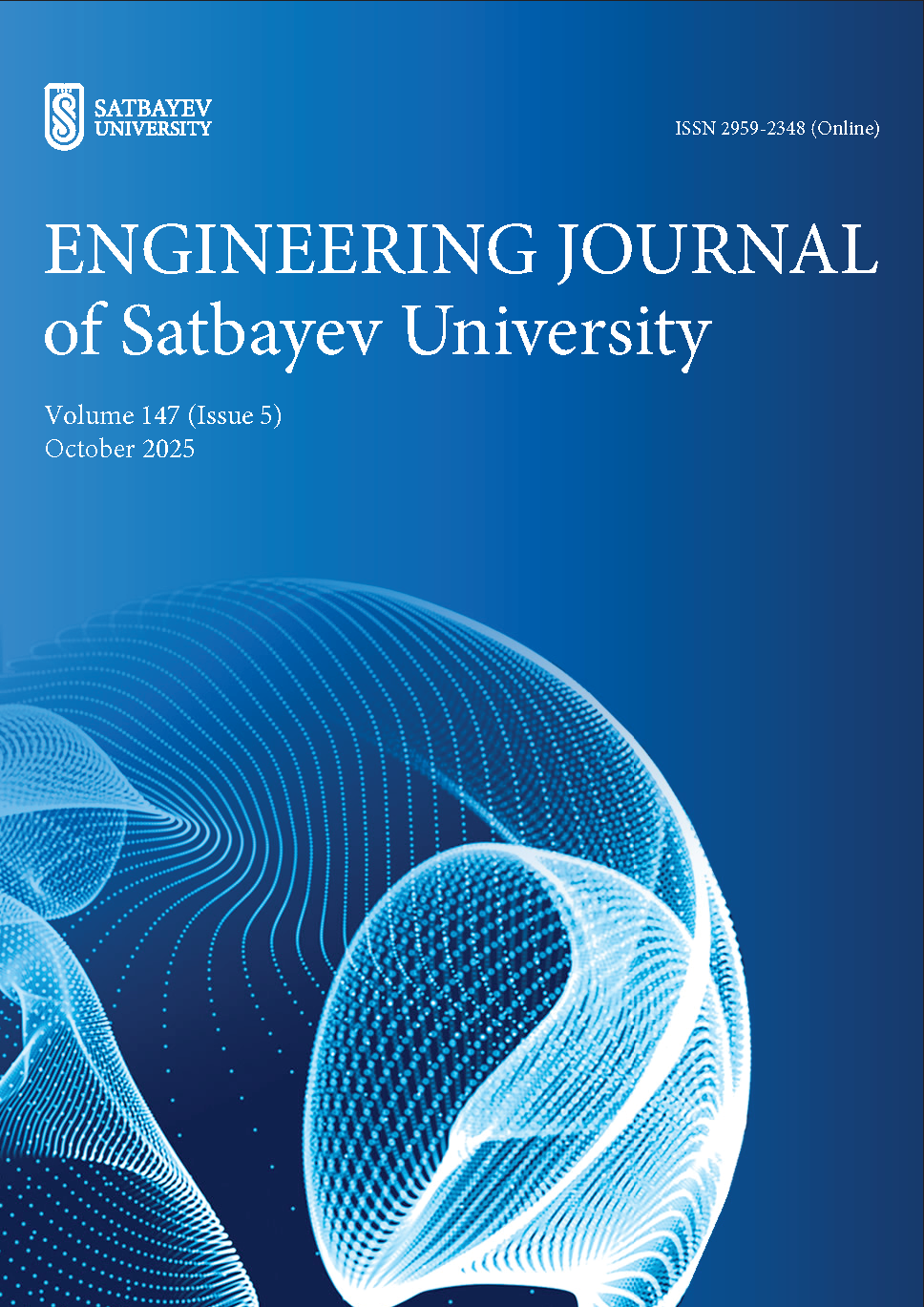The role of environmental and industrial safety during subsoil development
DOI:
https://doi.org/10.51301/ejsu.2025.i5.06Keywords:
environmental problems, the resource approach, man-made wastes, building materials, wastesAbstract
The article examines the environmental problems of the territories of the Republic of Kazakhstan. These problems are associated with the depletion of accessible mineral resources and the growing amount of man-made waste (MMW), which increases the land area occupied by dumps and landfills as well as the negative impact on the environment. Accumulated waste is, on the one hand, the main pollutant of the environment, and on the other hand, a valuable material potentially suitable for processing and reuse in the production of widely demanded building materials. The need for processing technogenic mineral formations is dictated by the fact that they occupy vast territories, are easily dispersed by wind, and pose an increased environmental risk for mining and metallurgical regions. In this regard, the scientific foundations of integrated methodologies for the environmental assessment of MMW and their recycling in the production of building materials and products were developed. The study substantiates the possibility of using these wastes as raw materials for building products while simultaneously addressing environmental challenges in the affected territories. Methods for the disposal of man-made waste and a quantitative assessment of the prospects for introducing resource-saving technologies are presented.
References
Law of Republic of Kazakhstan №125-VI RK. (2017). Сode on subsoil and subsoil use. Retrieved from: https://adilet.zan.kz/eng/docs/K1700000125/compare
Nurpeisova, M., Estemesov, Z., Gabbasov, S., Ashimova, A., & Bek, A. (2023). Studying the properties of ash and slag waste for use in the manufacture of construction products. Mining of Mineral Deposits, 17(3), 102-109. https://doi.org/10.33271/mining17.03.102
Begentaev, M.M., Nurpeisova, M.B., Fedotenko, V.S. & Bek, A.A. (2024). The use of mining and metallurgy waste in manufacture of building materials. Eurasian Mining, (1), 14-20. https://doi.org/10.17580/em.2024.01.04
Pevzner, M.E. (2008). Ecology of mining production. M.: Nedra.
Begentayev, М., Nurpeisova, М., Kuldiev, Е., Nurlybaev, R. & Век А. (2024). Study of the influence of technological factors on the density and strength of ash-gas concrete. The National Academy of Sciences of the Republic of Kazakh-stan-Series of Geological and Technical Sciences, 1(463), 45-57. https://doi.org/10.32014/2024.2518-170X.364
Database. (2022). Information on organization of waste management in the regions of the Republic of Kazakhstan. Retrieved from: http://ecogosfond.kz/wp-content/uploads/2022/11/Informacionnyj
-obzor-po-vedeniju-gosudarstvennogo-kadastra-othodov-za-2022_compressed.pdf
Estemesov, Z.A., Bekbasarov, Sh.Sh. (2004). Classification of waste. Mining Bulletin of Uzbekistan, Novai, (4), 60-63
Reimers, N.F. (1994). Ecology. M.: Young Russia
Mantell, Ch. (1979). Solid waste. M.: Stroyizdat
Estemesov, Z.A., & Bekbasarov, Sh.Sh. (2009). Waste and its use in the production of building materials. Almaty: CLTBM
Bekbasarov, Sh.Sh. (2008). Problems of rational use of natural resources. Poisk, (3), 135-139
Lewińska, P. & Dyczko, A. (2016). Thermal digital terrain model of a coal spoil tip – A way of improving monitoring and early diagnostics of potential spontaneous combustion areas. Journal of Ecological Engineering, 17(4), 170-179. https://doi.org/10.12911/22998993/64605
Wang, J., Apel, D.B., Dyczko, A., Walentek, A., Prusek, S., Xu, H. & Wei, C. (2022). Analysis of the damage mecha-nism of strainbursts by a global-local modeling approach. Journal of Rock Mechanics and Geotechnical Engineering, 14(6), 1671-1696. https://doi.org/10.1016/j.jrmge.2022.01.009
Salguero, F., Grande, J. A., Valente, T. (2014). Recycling of manganese gangue materials from waste-dumps in the Iberi-an Pyrite Belt – Application as filler for concrete production. Construction and Building Materials, (54), 363-368. https://doi.org/10.1016/j.conbuildmat.2013.12.082
Melkonyan, R.G. (2017). Environmental problems of mining waste disposal for the construction industry. Bulletin of Sci-ence and Education of the North-West of Russia, (3), 1-11
Lygina, T.Z., Luzin, V.P. & Kornilov, A.V. (2021). Multi-purpose use of technogenic non-metallic raw materials and production of new types of products from it. Fort Dialog-Iset, Yekaterinburg, (1), 67-71
Galperin, A.M., Kutepov, Yu.I. & Kirichenko, Yu.V. (2012). Development of technogenic massifs at mining enterprises: a monograph. Moscow: Gornaya kniga
Saparova, M., Ryskulbek, A. & Koyshybaeva, M. (2016). Analysis of the municipal solid waste management system of the city of Almaty. VII International Scientific and Practical Conference, ID: 27547873
Nurpeissova, М., Еstemesov, Z., Lozinsky, V. & Ashimova, А. (2023). Industrial waste recycling – one of the key direc-tions of business developmen. News of the National Acade-my of Sciences of the Republic of Kazakhstan, series of geol-ogy and technical sciences, 2(458), 193-205. https://doi.org/10.32014/2023.2518-170X.309
Ashimova, A.A., Bascetin, A., Bek, A.A., Nurpeisova, M.B., & Yestemesov, Z.A. (2022). Creation of efficient technolo-gies processing of man-made raw materials. Engineering Journal of Satbayev University, 144(1), 37-42. https://doi.org/10.51301/ejsu.2022.i1.06
Downloads
Published
How to Cite
Issue
Section
License
Copyright (c) 2025 Engineering Journal of Satbayev University

This work is licensed under a Creative Commons Attribution-NonCommercial-NoDerivatives 4.0 International License.
<div class="pkpfooter-son">
<a rel="license" href="http://creativecommons.org/licenses/by-nc/4.0/"><img alt="Creative Commons License" style="border-width:0" src="https://i.creativecommons.org/l/by-nc/4.0/80x15.png"></a><br>This work is licensed under a <a rel="license" href="http://creativecommons.org/licenses/by-nc/4.0/">Creative Commons Attribution-NonCommercial 4.0 International License</a>.
</div>





